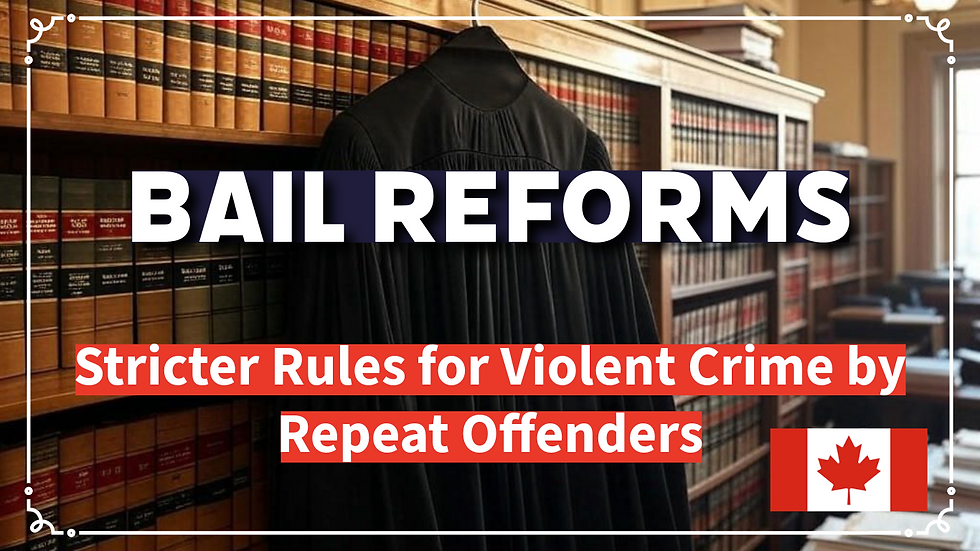Mexico vs Ecuador at ICJ:The Diplomatic tussle
- M.R Mishra

- May 2, 2024
- 3 min read
A confrontation between Mexico and Ecuador is set to commence on Tuesday at the International Court of Justice (ICJ), marking the culmination of weeks of tension following an incident wherein Ecuadorian forces conducted a raid on Mexico’s embassy in Quito in April. The purpose of the raid was to apprehend a former vice president of Ecuador who had sought asylum there.
Mexico has initiated legal action against Ecuador at the ICJ, alleging that the armed raid violated the Vienna Convention, a United Nations treaty governing diplomatic relations. Mexico is seeking Ecuador's suspension from the UN as part of its lawsuit.
Surveillance footage of the incident depicts Ecuadorian police grappling with the top diplomat of the Mexican mission during the arrest of Jorge Glas, Ecuador’s former vice president, who has been twice convicted of corruption. Despite widespread international condemnation, Ecuador’s President Daniel Noboa remains unapologetic, stating to CNN affiliate SBS news that he stands by the method of Glas's arrest.
During Tuesday’s hearing, Mexico aims to secure provisional measures from the ICJ, requiring Ecuador to take immediate steps to ensure the full protection and security of diplomatic premises and to refrain from actions that could exacerbate the dispute.
Provisional measures do not constitute a final verdict but act as a temporary injunction to prevent the escalation of a dispute while the full case undergoes court proceedings, which could extend over years.
Simultaneously, Ecuador has filed its own lawsuit at the ICJ against Mexico regarding its decision to grant asylum to Glas. Ecuador’s Foreign Ministry asserted in a statement that Mexico breached conventions, agreements, and international obligations by harboring Glas in its embassy in Quito since December, subsequently granting him asylum.
Ecuador additionally accused Mexican President Andrés Manuel López Obrador of meddling in Ecuadorian politics by making "false and injurious statements" that questioned the legitimacy of Ecuador’s elections last year, as stated in its ICJ filing.
The diplomatic conflict has prompted various Latin American leaders, spanning the political spectrum, to rally behind Mexico, with several nations severing diplomatic ties with Ecuador. This situation once again places Ecuador at the center of an international diplomatic crisis, reminiscent of when WikiLeaks founder Julian Assange was ousted from the Ecuadorian Embassy in London and apprehended by British authorities.
Mexico had offered Ecuador an opportunity to de-escalate the situation by demanding a public apology for the embassy raid and reparations. However, Ecuador refused to apologize, with President Noboa affirming to SBS News that his administration stands firm in its actions, believing they are historically justified.
The Ecuadorian president, the youngest ever elected in the country, grapples with a prolonged security crisis marked by drug cartel violence. Noboa has declared multiple states of emergency and recently won public support in a referendum for enhanced security measures to combat crime.

This situation may reflect a broader regional trend of supporting stringent, even authoritarian, measures to tackle crime in Latin America, evident in the re-election of El Salvador’s Nayib Bukele, who has pursued aggressive anti-crime policies.
At the heart of the Ecuador-Mexico standoff lies Glas, who sought refuge in Mexico from embezzlement charges, alleging political persecution. Glas served under former leftist President Rafael Correa, whose party remains influential in the National Assembly, potentially representing an opposition to Noboa’s administration.
Vienna Convention on Diplomatic Relations (1961): This is a cornerstone of modern international relations, establishing a framework for diplomatic relations between countries. It defines the rights, privileges, and immunities of diplomats, ensuring their ability to carry out their duties without fear of coercion or harassment by the host country. It's almost universally ratified and is considered one of the most successful legal instruments of the UN.

What is Embezzlement?
it is a type of white-collar crime where someone entrusted with assets or funds misappropriates them for their own personal gain. This means:
Misuse of entrusted assets: The perpetrator has legal possession of the funds or assets but uses them for a purpose other than what they were intended for.
Deceitful act: The embezzlement is done intentionally and with the knowledge that it's illegal.
Key characteristics:
Perpetrator: Embezzlement often involves individuals in positions of trust, such as employees, accountants, or public officials.
Methods: Embezzlers can use various methods to steal, like creating fake invoices, manipulating records, or simply pocketing cash.
Scale: Embezzlement can occur on a small or large scale, with losses ranging from petty theft to significant financial damage.
Thanks for visitng!!
Refrence: CNN, BBC, TC Televisión, Ecuador TV)






Comments